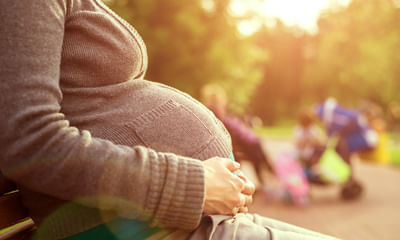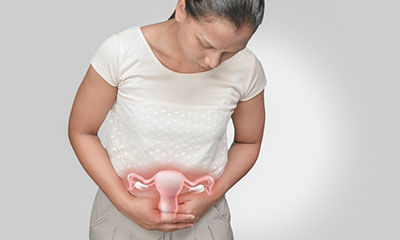What Does Thickening Of The Uterus Mean
Hi my mom is 64 years old. And she has indigestion issues so we did sonography as per the Dr. suggestion. Everything is ...
Ask Free Question
No relation endothelial lining n indignation. Indignation related to g I system. Endometrium in uterus. Tab unienzyme two times after lunch and dinner for three weeks.
Does the uterus wall thickens when 8 weeks pregnant? I wanna know as I got an abdomen ultrasound when I was having pregn ...
Ask Free Question
The normal thickness of the endometrium changes throughout a person’s life, from childhood, through to sexual maturity, fertile years, and after menopause. Medicalnewstoday uses cookies to improve your experience and to show you personalized ads. Privacy policy. More information what to know about endometrial thickness medically reviewed by valinda riggins nwadike, md, mph — written by danielle dresden on november 19, 2019 normal thickness measurement causes of thin or thick lining symptoms treatments seeing a doctor outlook the endometrium is the lining of the uterus. It is one of the few organs in the human body that changes in size every month throughout a person’s fertile years. Each month, as part of the menstrual cycle, the body prepares the endometrium to host an embryo. Endometrial thickness increases and decreases during the process. Two hormones, estrogen and progesterone, prompt these cycles of endometrial growth and its shedding through menstruation if a pregnancy does not develop. In this article, we look at the normal range for endometrial thickness, causes of changes, and when to see a doctor. Normal thickness a healthcare provider may measure the thickness of the endometrium with an ultrasound. The normal thickness of the endometrium changes throughout a person’s life, from childhood, through to sexual maturity, fertile years, and after menopause. In imaging tests of young females who have not yet begun menstruating, the endometrium is present but smaller than it will be later in life. According to the radiological society of north america (rsna), the endometrium is at its thinnest during menstruation, when it usually measures between 2–4 millimeters (mm) in thickness. The first half of the proliferative phase starts around day 6 to 14 of a person’s cycle, or the time between the end of one menstrual cycle, when bleeding stops, and before ovulation. At this phase, the endometrium begins to thicken and may measure between 5–7 mm. As the cycle progresses and moves towards ovulation, the endometrium grows thicker, up to about 11 mm. About 14 days into a person’s cycle, hormones trigger the release of an egg. During this secretory phase, endometrial thickness is at its greatest and can reach 16 mm. Pregnancy endometrial thickness is important in pregnancy. Healthcare experts link the best chances for a healthy, full-term pregnancy to an endometrium that is neither too thin nor too thick. This allows the embryo to implant successfully and receive the nutrition it needs. The endometrium gets thicker as the pregnancy progresses. Menopause the rsna also state that in healthy postmenopausal people, the endometrium typically measures about 5 mm or less. How to measure ultrasound is the most common way to measure the thickness of the endometrium. It is the method that healthcare providers use first, especially if an individual has reported abnormal vaginal bleeding. When ultrasound is not suitable, often due to the position of a person’s uterus or other health conditions, doctors use mri. Causes of a very thin or thick endometrial lining the thickness of the endometrium changes during a person’s menstrual cycle, but other factors can prompt changes as well. One of the more common causes of changes in endometrial thickness is pregnancy. Women who are having an ectopic pregnancy or who are less than 5 weeks pregnant may show signs of a thickening endometrium. Cancer of the endometrium or the ovaries is one of the most severe conditions that can lead to an increase in endometrial thickness. According to the american cancer societytrusted source, endometrial cancer is the most common cancer affecting a person’s reproductive systems. Developing more often in white people than african american people, endometrial cancer is rare in females under 45. The average age at diagnosis is 60. Other factors contributing to a greater thickness of the endometrium include: obesity hormone replacement therapy (hrt) tamoxifen chronic high blood pressure endometrial polyps diabetes scar tissue endometrial hyperplasia.
I have taken I pill in my fertile period will it prevent fertilization of egg and its implantation I have taken I pill w ...
Ask Free Question
I am sorry to hear about your concern but will be happy to assist you. Combination birth control pills contain estrogen and progesterone and help to prevent ovulation. Without ovulation, there's no egg to be fertilized. The hormones also help thicken cervical mucus, making it harder for sperm to get into your uterus. Let's connect over a call so that we can discuss your concern in details and make a suitable treatment plan for you.
Pcos caused an abnormal thick uterus wall. But will thickness restore if I balance my pcos and get regular periods? ...
Ask Free Question
I am sorry to hear about your concern but will be happy to assist you. Irregular uterine bleeding from pcos is usually due to lack of ovulation. Under this circumstance, the fragile lining of the uterus (endometrium) becomes thickened from excess estrogen and is not corrected by the monthly production of progesterone from the ovary that normally follows ovulation. Let's connect over a call so that we can discuss your concern in details and make a suitable treatment plan for you.
Do prolonged periods in pcos means thick endometrium? Will the thickness restore after controlling pcos, i.e. Getting re ...
Ask Free Question
I am sorry to hear about your concern but will be happy to assist you. The endometrium changes throughout the menstrual cycle in response to hormones. During the first part of the cycle, the hormone estrogen is made by the ovaries. Estrogen causes the lining to grow and thicken to prepare the uterus for pregnancy. Let's connect over a call so that we can discuss your concern in details and make a suitable treatment plan for you.
I have pcos. Yesterday was my ovulation day and today I got blood tinged discharge. Maybe spotting. Is this normal? Why ...
Ask Free Question
I am sorry to hear about your concern but will be happy to assist you irregular uterine bleeding from pcos is usually due to lack of ovulation. Under this circumstance, the fragile lining of the uterus (endometrium) becomes thickened from excess estrogen and is not corrected by the monthly production of progesterone from the ovary that normally follows ovulation. Let's connect over a call so that we can discuss your concern in details and make a suitable treatment plan for you.
I am 46 years old and 20 days back (6/05/21) I got to know I have fibroid which is about 2 mm (27×22 mm) with endometriu ...
Ask Free Question
Yes.
Last year in january I found out that I have pcod. The doctor gave me contraceptive pills and I took them for like 3 mon ...
Ask Free Question
pain in the uterus may be because of thickened endometrium because you didn't get your period for a long time so just do an ultrasound scan if it is very thick you will have to be supported with progesterone levels to get the period out it's called as medical curettage
Dr. I am 47 year female, I had multiple 3-4 small fibroid largest measures approx 14*11. 8mmin my uterus. My endometrium ...
Ask Free Question
The fibroids are small but your endometrial thickness is more, so if there is excessive menstrual flow I would suggest you to get an endometrial biopsy done.
Hi, my mother, 52, is post-menopausal, obese (91. 1 kgs), recently hypertension (bp 120/80 with meds) has a case history ...
Ask Free Question
Dear lybrate-user ji regarding your mom's case, bleeding per vaginum post menopausal may be due to atrophic vaginitis that occurs to such ladies in 4-5 years after menopause. Other reasons can be cervical polyps, uterine hyperplasia (ruled out be tvs). Let us wait for endometrial biopsy and get the results. Other symptoms are just psychological due to anxiety. I would like to have a chat with you first and if possible, pls connect via a pvt chat. Have a nice day!






